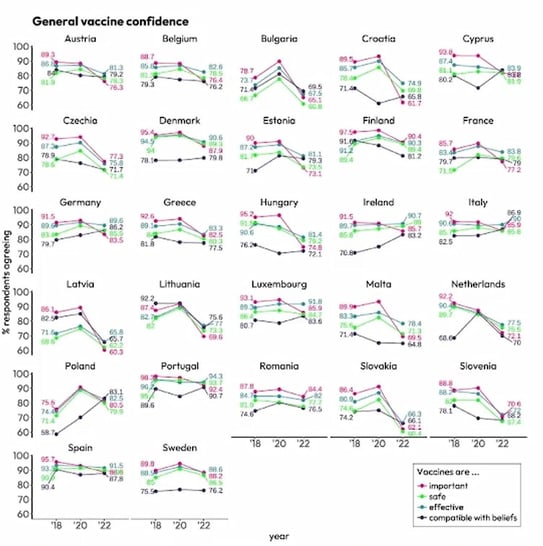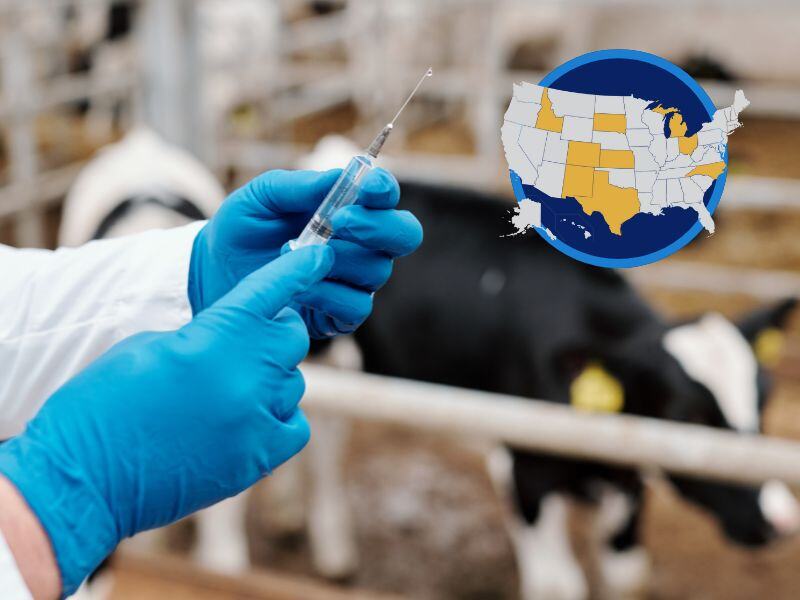Vaccines After COVID: How the Pandemic Has Changed the Vaccination Market

Presented by: Ali Ciger, Vaccines Germany Lead at Pfizer
Edited by: Cara Digby-Patel
The COVID-19 pandemic entirely changed public attitudes towards and awareness of vaccines and vaccination efforts. Almost three years on from the start of the pandemic, Ali Ciger, Vaccines Lead in Germany for Pfizer, ponders the question of where vaccinations will end up on the global agenda – top-of-mind or forgotten altogether?
Speaking at Oxford Global’s Vaccines Europe: In-Person event in November 2022, Ciger explored how onversations regarding vaccines and vaccination rollout, which would have typically happened in closed circles within the scientific community, were suddenly thrust to the forefront of global media and how this has altered society’s perception of such matters. He also discussed steps different stakeholders might implement in the vaccination market to create a more desirable future.
The COVID-19 Vaccination Efforts
Ciger began by stating that there can be no doubt that the COVID-19 vaccination rollout was “the biggest, fastest, and most successful rollout in the history of humankind.” The global nature of the pandemic and the undifferentiated impact it had, affecting both developed and developing countries alike, meant that anything short of the vaccination rollout we saw would have been insufficient.
And the evidence we now have fully supports Ciger’s statement. As of November 2022, 68.4% of the global population had received at least one dose of the vaccine, bringing the total number of doses administered close to 13 billion.
Moreover, evidence published earlier in 2022 suggests that the vaccination rollout prevented over 14 million deaths across 185 countries in 2021. Ultimately, it would be difficult to overstate the significance of the efficacy of the vaccination rollout in bringing the COVID pandemic under control.
- Oxford Global's R&D Key 40 Stories
- Dual-Action Malaria Vaccine Takes the Punch out of the Parasite
- Nexelis’s Collaborative Development for Optimal Clinical Assay
Is Vaccine Confidence Faltering?
Despite the seemingly irrefutable evidence which reflects how important successful vaccination efforts were, public attitudes show a substantially different picture. Citing statistics from vaccineconfidence.org, the broad trend across EU countries reflects a pronounced decrease in general vaccine confidence between 2018 and 2022 (see Figure 1).

The first data point is taken from 2018, the second from 2020, and the third from 2022. In most of these markets, there was a small peak in 2020 when vaccination was the “only hope” of escape from lockdowns, as Ciger put it. However, as things returned to “normal”, vaccine confidence saw a significant downturn, and in many instances, it has dropped below where it was in 2018.
Furthermore, there has been a pronounced increase in the vaccine confidence gap between different social groups. One of the most pronounced divides has emerged between elderly and younger populations, as Figure 2 demonstrates. Ciger views this as a significant issue, as vaccination has become a divisive societal factor. Unfortunately, despite the available data and the global experience of the pandemic, the prevalence of misinformation has substantially increased public mistrust.

Working For a Better Outlook
Ciger believes there are some tangible steps the scientific community can take to improve public attitudes towards vaccines. These steps could also increase vaccination rates for vaccine-preventable diseases and make vaccines more accessible. They would broadly target four stakeholders: pharmacies, doctors, consumers, and policymakers.
Firstly, he feels that pharmacies need to support medical practices by offering vaccination directly or a vaccination card check. Pharmacies are crucial to vaccination efforts, but currently they are not used to their fullest potential. Ciger noted that this is particularly the case in some European countries, such as Germany, where certain laws stipulate that pharmacies can only offer a limited range of vaccines. Vaccine confidence would no doubt increase if pharmacies offered support to patients in the form of medical knowledge, as well as providing vaccination themselves.
Moreover, Ciger feels that more can be done to ensure that doctors provide sufficient support and education to patients regarding vaccinations. One way this might be achieved is simply by allocating specific vaccine consultation hours in doctors’ offices. Ciger also suggested that vaccination software for doctors’ offices with a reminder function to flag when patients are eligible for vaccinations would be beneficial, as it would be an effective preventative measure.
In a similar vein but with a more consumer-focused approach, digital vaccination cards with a reminder function would streamline the vaccination process and render it more efficient. There are already quite a few start-ups working on this technology, and Ciger is hopeful that it will begin to be implemented in the coming years.
Stronger Together: Implementing a Dual-Effort Approach
Finally, the scientific community needs to start working more closely with policymakers. As Ciger put it, “science is much less impactful if it is not delivered to and understood by the public.” The current lack of measures and a healthcare system which can promote and support vaccinations has been distinctly limiting for the scientific community, as it has inhibited their capacity to bring scientific discovery and progress to the public. Ultimately, neither policymakers nor scientists can resolve the issues faced independently but must work together to increase vaccine confidence and close the gap which has grown over the last few years.
Join Oxford Global’s annual Biologics UK: In-Person event today. This 3-day conference brings together a panel of prominent leaders and scientists, sharing new case studies, innovative data, and exciting industry outlooks.








